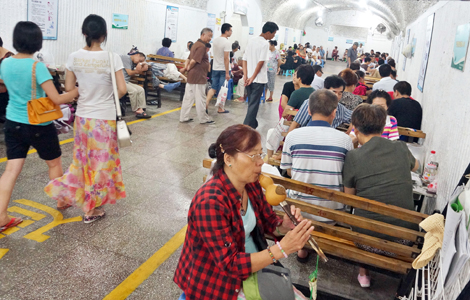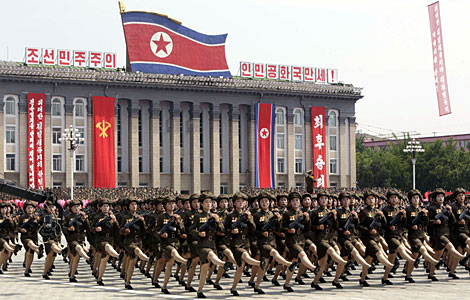China eyes Japan's SE Asia buying binge
Updated: 2013-07-29 01:31
By ZHAO YANRONG (China Daily)
|
||||||||
Japanese companies have been scooping up assets at a record pace in Southeast Asia this year, a sign that Chinese experts said should be watched with caution to see if a political agenda is behind the buying spree.
Japan's growing interest could either boost regional economic development or further damage Sino-Japanese relations, depending on Tokyo's economic intensions, experts said.
According to an AFP report, Japanese firms have spent a staggering $8.2 billion on mergers and acquisitions in Southeast Asia so far in 2013, already a record with five months to go and well above the $614 million at the same time in 2012, data provider Dealogic said.
The figure easily outstrips the previous full-year best of $7.6 billion in 2006, it added.
Toru Nishihama, an economist at Dai-Ichi Life Research Institute, said Japan has a reason to invest so heavily so fast.
"Japanese companies have been searching for places to invest in addition to China," Nishihama was quoted by AFP as saying. "This trend is likely to continue for the next five to 10 years.
"The Japanese government is very proactive about it," Nishihama said. "It has become enticing for Japanese businesses to invest in Southeast Asia, with government-affiliated financial institutions."
Meanwhile, the increase in Japanese investment in China has been slowing in the past two and a half years, from 76.3 percent in 2011, 16.3 percent in 2012, to 14.4 percent in the first half of 2013, according to the Ministry of Commerce and the Japanese Chamber of Commerce and Industry in China.
Zhang Jifeng, a researcher at the Chinese Academy of Social Sciences, said political tension between China and Japan fueled by territorial rows have been damaging the two countries' economic ties.
But increased Japanese investment in Southeast Asia is not necessarily bad for China, he added.
"If Japanese companies move their investment in the labor-oriented industries from China to Southeast Asian countries while China is adjusting the structure of industries as well as elevating the economy, the trend can boost the region's economic development, and China can also benefit from the region's market growth at the same time," Zhang said.
Finding a lower cost labor market in Southeast Asia is important for many Japanese manufacturing companies, which is as reasonable as "not putting all your eggs in one basket", he added.
"However, if Japanese Prime Minister Shinzo Abe wanted to gain more political support from Southeast Asian countries that have territorial disputes with China at the moment through economic measures, the new competition between China and Southeast Asian countries, incited by Japan, will not be good for the region's development," Zhang said.
Both China's and Japan's exports increased in the first half of this year, and the global economy generally turned better in the same period, but Sino-Japanese economic ties did not improve, Zhang said.
"We can see that China-Japan political relations have a strong impact on the two countries' economic cooperation. Since China is Japan's largest trading partner and Japan's investment is also important for China's economic development, both governments should pay more attention to avoid the negative consequences from political tensions," Zhang added.

 Asiana crash victims' ashes returned to relatives
Asiana crash victims' ashes returned to relatives
 7 killed in Florida shooting spree
7 killed in Florida shooting spree
 Sun Yang takes gold in 400m freestyle
Sun Yang takes gold in 400m freestyle
 Six dead, 12 missing in landslides, floods
Six dead, 12 missing in landslides, floods
 Complaints spike over subpar baby formula imports
Complaints spike over subpar baby formula imports
 EU solar trade dispute diffused
EU solar trade dispute diffused
 Deliveries up as mercury rises
Deliveries up as mercury rises
 DPRK stages military parade
DPRK stages military parade
Most Viewed
Editor's Picks

|

|

|

|

|

|
Today's Top News
Pakistan condemns latest US drone strike
Experts advise CEOs on how to make it in the US
Israeli-Palestinian peace talks to resume
Latest US-China talks should smooth the way
Audit targets local government debt
30 people killed in Italy coach accident
Brain drain may be world's worst
Industry cuts cloth to measure up to buyers' needs
US Weekly

|

|








